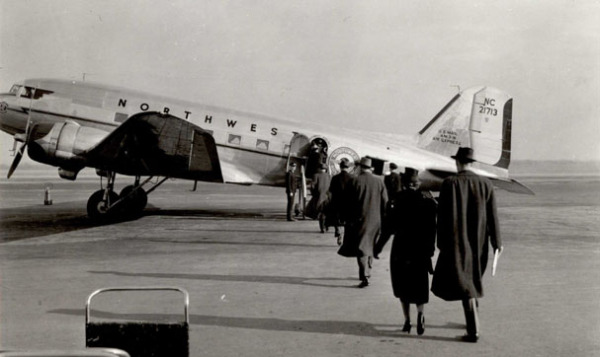jet-lag, begone!
So three days later, I’m still fighting some residual jet lag.
Usually when we travel we’re going west to east, which means the potential for jet lag is higher at the beginning of our vacation. The east-to-west return home is usually a piece of cake. One or two days and my clock is fully re-set. I show up for work the day after we arrive home bright-eyed and ready to attack some spreadsheets.
However, on this trip, our return journey was the west-to-east, covering 15 time zones. (The biggest time difference I’ve dealt with prior to this was 9 hours.) It’s taking a bit longer after this trip to feel fully myself; I’m fine in the mornings, but around 3pm I start to get a bit groggy, and I have yet to sleep through the night completely.
It’s probably not as bad as it might have been, as I’ve developed some strategies that seem to work to minimize jet lag.
- Upon arrival, I spend as much time in natural light as possible, and stay awake until normal “bedtime” in the destination time zone. Walking a lot also helps. When traveling to Europe we generally arrive in the morning or mid-day; dropping luggage at the hotel and then spending a few hours walking outdoors resets my body clock pretty effectively.
- I limit my alcohol consumption in transit and on arrival, as while a glass of wine generally helps me fall asleep, it often results in interrupted sleep a few hours later.
- I also avoid heavy meals on the plane and for the first few hours after we arrive.
- Limit naps to a very short duration.
- Melatonin at bedtime helps re-set my sleep cycle.
- Hydrate, hydrate, hydrate. Drink as much water as I can tolerate. Tea, too.
If you travel across multiple time zones, how do you deal with jet lag?

Stay in touch
Sign up to be notified of new posts and updates from une femme d’un certain âge.



Oddly, I find the opposite is true: I experience no problems going East, and great difficulty going west. When I went to China, I didn’t sleep more than 3 hours a night for the first five days. Today I am 3 days back from Paris, and last night was the first night that I slept correctly. I never take medication for this because I have an odd metabolism that tends to over react to sleep and pain medications, but friends who travel internationally on a regular basis swear by OTC melatonin.
I must admit, I never understood the east-west thingy, but all of your strategies are spot-on. I am a shift worker, so I travel virtual timezones on a regular basis. I am a big fan of melatonin for both my virtual travel and real travel!
Yikes! This is a huge concern for me as we leave today for HK, Japan and Singapore! I will need to hit the ground running and am NOT looking forward to jet lag. Thanks for the tips!
Our big tip when we go to Europe is to allow yourself a nap when you get to your hotel (it’s a rare international flight that allows you to get 8 hours of sleep) but then to force yourself to get up, walk around and have dinner at a normal time and go to bed at a normal time. Also to set your watch to your new time zone the minute you get on the plane and not to allow yourself to consider what time it “really” is.
I’ve tried melatonin and other otc products, they seem to have no effect. What works is Amble’s method and Imovane (by rx) for a few nights. (Not sold in US; closest product is Lunesta.) After one or two nights of rx-assisted sleep and plenty of exercise, I’m turned around.
As a purser on long-haul international flights for many years, I (and my crews) found that drinking as much non-caffeinated, non-carbonated, non-alcoholic liquid as possible during and for 24-48 hours after a flight was the best single measure we could take to deal with the deleterious effects of long-haul flying. Crossing times zone (even on round-the-world trips) was far easier if we took that step, even though it meant setting the alarm clock so we would awaken to drink at least 8-12 oz. of water (and urinate) every 3-4 hours while we were sleeping. The other measures mentioned by commenters also helped (in different combinations for different people), but we avoided prescription sleep aids because the sleep they assisted tended not to be the most productive sleep. Last, give yourself time: we were advised that full adjustment to a time change would take about one week for each hour of the change.
Flying from Australia to Europe, we swear by melatonin and “an hour and a shower” ~ an hour of sleep on arrival, followed by a shower and then a full day of sightseeing, early dinner and bed. Seems to do the trick. Flying back here after 9 weeks in Europe earlier this year was not so good…..it took us about 3 weeks to recover. We should have had a few days stopover but we’d been away so long, we just wanted to get home.
I have made many trips between Australia and France over the years (living in France now) and , since I get airsick, now use airsickness medications on all flights. I don’t eat the food (no loss) but I do drink a lot of water and ‘doze’ on and off for the 24 hours the flight takes. I find I don’t have jet lag, in either direction, and arrive relaxed and ready to go. There is nothing happening on a plane that is worth staying awake for and making yourself unwell for days when you arrive.